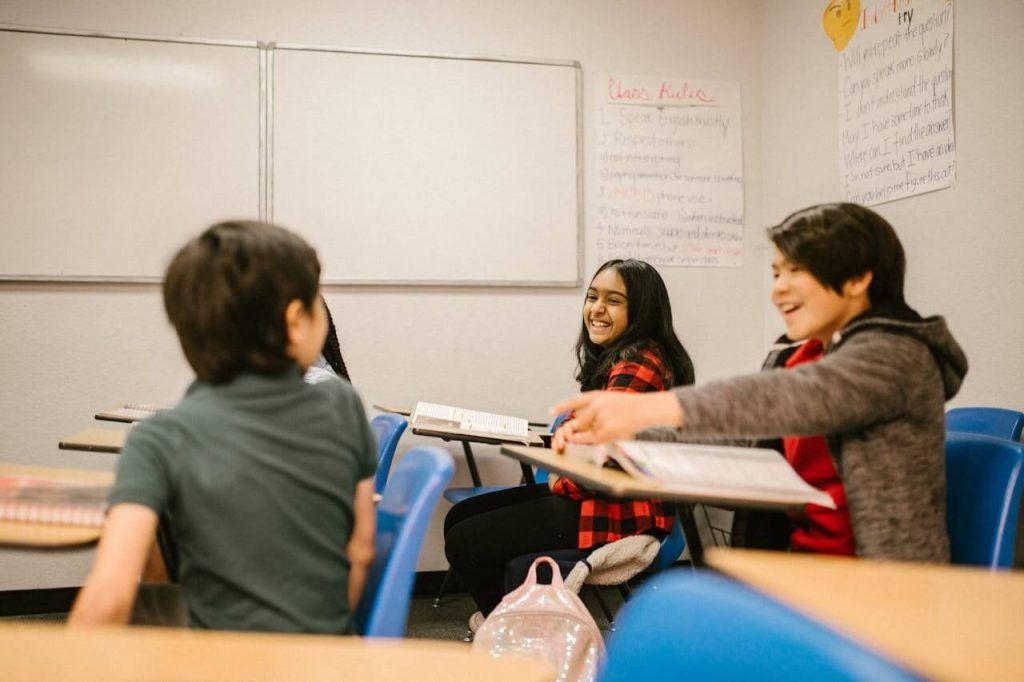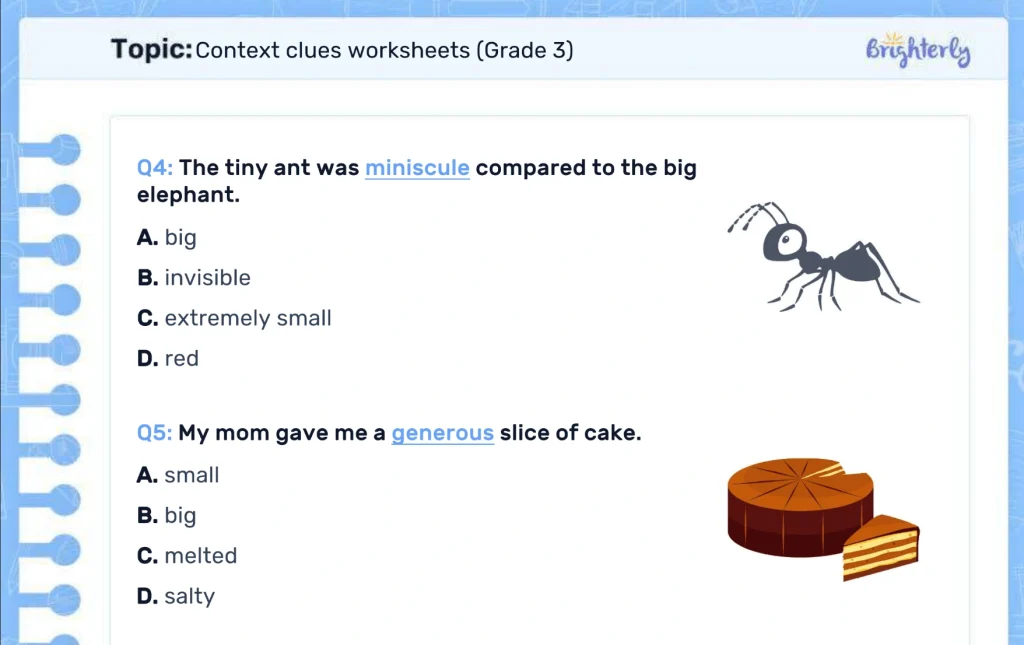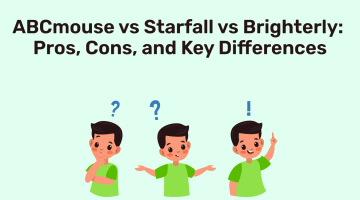18 Best Vocabulary Games for Kids (2026)
reviewed by Franz Jerby Delos Santos
Updated on October 23, 2025
If you’ve ever tried to get your child to memorize a long list of words, you know it can be tough. The good news is that vocabulary games for kids make learning feel like play. As a teacher, I’ve tried many ideas in classrooms and tutoring sessions. These 18 favorites keep kids engaged, laughing, and learning without even noticing they’re studying.
Key points
- Games to improve vocabulary help you learn faster than pure drills.
- The best approach is to mix quiet, creative, active, board, and digital activities.
- Keep play sessions short; repeat them weekly to build momentum.
- Involve kids in “teaching back” new words; they’ll retain more.
What is the best game to improve vocabulary?
The best vocabulary game is the one your child will actually play consistently. For beginners, I like the word map builder and match-ups. If kids love movement, try scavenger hunts or charades. Older students enjoy debates, story dice, or quick vocabulary games online free.
How to teach vocabulary by games?
Start with a small list (3-5 words). Model each word with a short, clear example. Choose one game that matches your child’s mood that day: active, creative, or quiet. Keep it brief (time limit: 5-10 minutes), end with a sentence or tiny story, and revisit tomorrow. Rotate digital tools, cards, and board ideas so you cover spelling, meaning, and context without it feeling repetitive.
Brighterly worksheets for vocabulary practice
For families who want structure, Brighterly math and reading platform makes setup easy. It covers the essential reading program and vocabulary skills through engaging, grade-based activities. Trusted by over 200,000 parents, the platform offers hundreds of skilled math and reading teachers for grades 1–9.
Parents can choose free reading worksheets for their kids’ grade, covering fiction, nonfiction, story structure, and character analysis. Topic-based sets turn after-school practice into fun play. For early learners, the rhyming words worksheet develops sound patterns and vowel awareness through playful brain teasers.
Context clues worksheets teach kids to infer meanings from context, boosting confidence and independence. All worksheets are available digitally or in print for flexible practice.
Types of vocabulary games
- Worksheets & printables (word maps, match-ups, cloze).
- Creative word vocabulary games (drawing, comics, storytelling).
- Club style (debate, riddles, quiz).
- Board & card classics (charades, taboo, bingo, letter tiles).
- Digital programs & apps (online vocabulary games for elementary students & other grades).
- Movement & outdoor (scavenger hunts, relay).
- Daily routines (word jar, fridge tags).
- Drama & role-play (skits, puppet shows).
I rotate categories weekly; if kids tire of drawing, we switch to something active, then back to writing or online practice. This blend supports middle school and elementary students alike.
18 vocabulary games for students
- Word maps & match-ups
- Scavenger hunt: Search for the word
- Synonym charades
- Comic strip challenge
- Riddle relay
- Vocabulary bingo
- One-minute stories
- Hot seat
- Pictionary with words
- Word jar
- Puppet show words
- Debate club for kids
- Word association chain
- Memory flip cards
- Freeze dance words
- Word ladder
- Online quiz race
- Story cube dice
Vocabulary game #1. Word maps & match-ups
Grade: K-5 (ages 5-10)
Kids start by writing a word in the center of the page. Branch out with its definition, a synonym, an antonym, and a quick sketch. They wrap it up with one strong sentence to use the word. Take “enormous,” for example: synonyms like “huge” or “giant,” antonym “tiny,” and a picture of an elephant. A second grader once drew a giant dog sitting on a tiny chair, and she never forgot “enormous.” For me, this is the perfect warm-up: simple, visual, and easy to revisit the next day.
💡Brighterly tip: Printable vocabulary practice games from Brighterly make setup quick, so you can focus on talk time, not prep.
Vocabulary game #2. Scavenger hunt: Search for the word
Grade: 1-6 (ages 6-11)
Provide students with a brief list of your 5-8 focus words and have them go on a “word hunt.” Their assignment: find the life match, shoot a picture or make a quick drawing of it, and share each with a sentence. For instance: shiny → mirror; fragile → glass; curved → banana. These little games to increase vocabulary ingrain words in place, linking them with meaning and the real world that kids see every day.

Vocabulary game #3. Synonym charades
Grade: 2-7 (ages 7-12)
A player mimes a word, and others try to guess it or its synonym. For example: vocabulary word game with “exhausted” → tired, drained, sleepy. Kids love to hyperbolize: A 9-year-old who flopped across the carpet like a movie star, ‘‘too tired to move,’’ found that suddenly everyone had three strong synonyms. Humor cements meaning. To challenge vocabulary skills, have a time limit or insist on two synonyms before earning a point.
Vocabulary practice game #4. Comic strip challenge
Grade: 1-8 (ages 6-13)
Kids draw a three-panel comic and fill the speech or thought bubbles with target words. Drawing reduces the pressure for reluctant writers, and the words move the story along. This vocabulary game for kids also helps to build context, sequence, and voice. This is a productive way to transition from reading to writing.

Vocabulary word game #5. Riddle relay
Grade: 2-8 (ages 7-13)
Students compose a riddle for a given word; team members try to guess the word from the clues. Example: “timid” → “I’m the shy one who stays behind my mom at a party”? Riddles require clear hints, so children learn to define without depending on precise words. I keep my favorite riddles in a shared doc; for car rides, they work well and can make fast vocabulary learning games for small groups or ESL practice.
Vocabulary word game #6. Vocabulary bingo
Grade: 1-6 (ages 6-11)
Arrange some synonym or antonym boards. The caller gives a clue; players mark the match and read out a brief sentence to show they have it right. Example: opposite of rapid → slow. I include a free square that is only available if you use the word correctly in conversation. This turns passive recognition into active use and creates that competition during the light board game even reluctant students like.
Vocabulary practice game #7. One-minute stories
Grade: 3-8 (ages 8-13)
Children form groups of three to practice storytelling and use a set of vocabulary within a minute. They rotate roles as storyteller, timekeeper, and word checker. Example: “fortunate, obstacle, invent”: “I was fortunate to invent a tool that removed my obstacle.” While some children may freeze, there is a buzz in the room after a few rounds. The short time limits encourage the brain to stay sharp and promote fluent use of language.

Vocabulary game #8. Hot seat
Grade: 2-8 (ages 7-14)
A student stands with their back to the board while the other classmates provide clues for the word written on the board. The hot-seat player has to guess the word. Examples: delicious → tasty, flavorful, mouth-watering. I set the clue limit to three. This encourages kids to select the best synonym. This helps build fast feedback loops and works wonderfully for vocabulary games for students in classes.
Vocabulary game #9. Pictionary with words
Grade: 1-6 (ages 6-11)
Children can illustrate the meaning or the intensity of a word, not just the object. For instance, gigantic can be represented by a dinosaur next to a mouse. Fragile as an egg on a spoon. Include compare/contrast panels like calm vs. furious to explore shades of meaning. Later, use these drawings as writing or spelling prompts with letter tiles.

Vocabulary practice game #10. Word jar
Grade: K-8 (ages 5-13)
All week, slip new words into a jar. At dinner or bedtime, draw one and have each person use it naturally in a sentence. Choose a “Word of the Weekend,” and award a tiny point for spontaneous use in conversation. Rituals like this turn vocabulary games into family culture. Using it for vocabulary games for 4th grade and vocabulary games for 5th grade, this keeps practice short, friendly, and consistent.

Vocabulary game for kids #11. Puppet show words
Grade: K-5 (ages 5-10)
Use puppets (or sock “characters”) to perform tiny skits that convey meaning. Example: brave → puppet rescues another puppet from a toy monster. Shy kids feel safer speaking through the puppet; recording and reviewing the shows later brings fun. It is great for those ESL students who need some safe, repeatable practice.
Vocabulary game #12. Debate club for kids
Grade: 3-8 (ages 8-14)
Which activity is most effective for enhancing vocabulary in children? Deliberate, structured talk with real stakes. Choose a playful topic (“Homework should be replaced with more recess”), and ask them to use 3-5 target words in each argument. Kids enjoy advocating for pets, snacks, or screen time. This is one of the best vocabulary games for enhancing speaking confidence in middle school.
Vocabulary game #13. Word association chain
Grade: All ages
Instruction: begin with one word, and other players add on words as they relate, ultimately building a chain that shows how words may be logically linked together. Example: ocean → wave → surfboard → vacation → sunscreen. Pause to discuss why each connection was made. Later, challenge the children to connect two distant words in three steps. This helps practice problem solving and keeps students thinking in terms of categories.
Vocabulary game for kids #14. Memory flip cards
Grade: K-4 (ages 5-9)
Make pairs with a word on one card and a definition/picture on another card. Play the classic memory game! Before you put the pairs aside, have the child read the matched word in a short sentence. Use color to build category knowledge by color-coding themes (feelings, weather, school). Minimal prep, maximum payoff!
Vocabulary game for kids #15. Freeze dance words
Grade: K-3 (ages 5-8)
Say: “When the music stops, name a word and then perform a pose that indicates what it means (stretchy, proud, sleepy).” Movement can “lock in” meaning in a way that sitting can not. This is a crowd favorite as fun vocabulary games go, because it is playful. Moreover, research supports that physical activity may positively impact learning.

Vocabulary game #16. Word ladder
Grade: 3-8 (ages 8-13)
Begin with a single word and change one letter at each turn to form a new word. Read the word for each turn and use it in a sentence: cold → gold → bold → bolt. This activity incorporates phonics, spelling, and meaning. It’s one of the best vocabulary games for students who just love a good puzzle.
Vocabulary game #17. Online quiz race
Grade: 2-8 (ages 7-13)
Utilize kid-friendly platforms that have short, timed rounds (3-5 minutes). They should offer image prompts, audio clues, short checks of definitions, and recognize steady improvements, not just when the learner gets the highest score. These vocabulary games for kids online provide instant feedback and optional variety, making them perfect digital tools for busy families!

Vocabulary builder game #18. Story cube dice
Grade: 2-7 (ages 7-12)
You can roll the dice with visuals or word prompts, and create a mini-story using all of the results. Example: storm, secret, treasure → “We found a secret treasure in the storm.” If you don’t have dice, write words on scraps and draw three at random. Bind favorite stories into a small booklet; kids love rereading their own writing! It helps naturally expand vocabulary and builds confidence.
Bonus: Choosing the best word game to improve vocabulary
- For reluctant readers, start with word jar, freeze dance, or synonym charades. For writers, try comic strip challenge and one-minute stories.
- For puzzle and logic lovers, word ladder or memory flip cards will be perfect.
- If your child prefers screens, steer them toward online vocabulary games for elementary students: short sessions, frequent wins.
- The “best word game to improve vocabulary” is whichever one your child asks to play again tomorrow.
Conclusion: Vocabulary games for kids
Well-chosen vocabulary games for kids help learners internalize meaning, speak confidently, and write with precision. Start with 3-5 focus words per week, rotate formats (worksheet + game + online quiz), and always end with a use-it-now moment: speak a sentence, write a line, or explain the word to someone else. That simple routine works in the classroom and at home, and it supports beginners, advanced learners, and ESL students alike.
If you want structured lessons, personalized feedback, and steady progress, the best choice is Brighterly’s live, 1-to-1 approach with friendly tutors – book free reading lesson today to see how it works.















